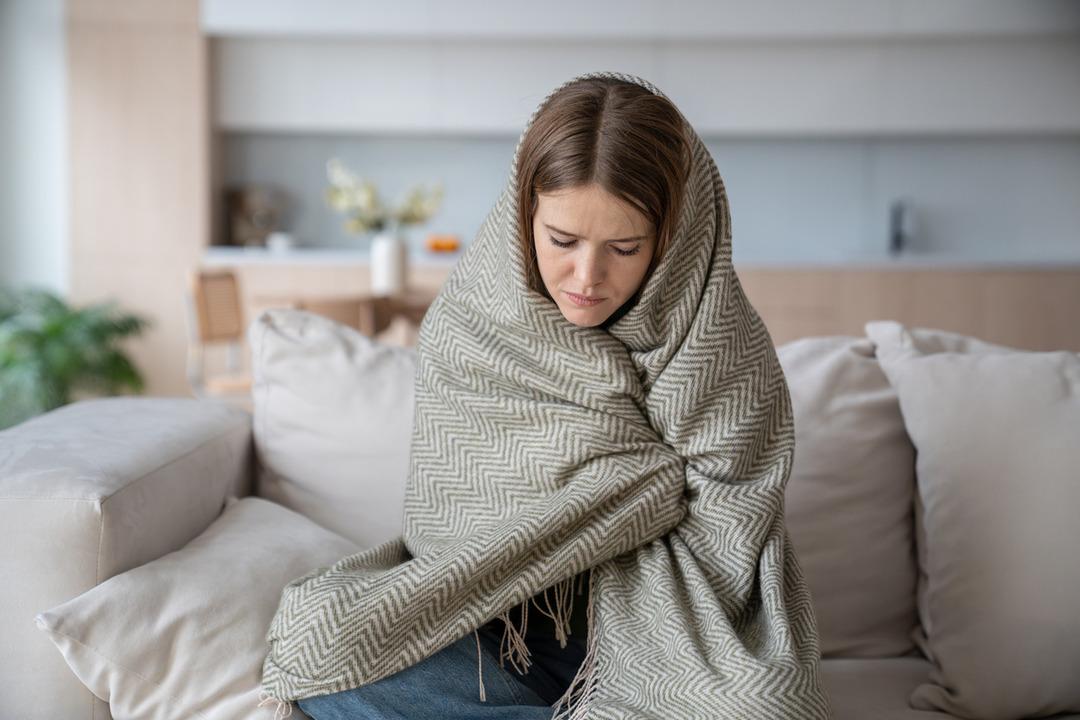Dr. Meriç Zeydan said that factors such as cold weather in winter as well as spending too much time in crowded and closed spaces pave the way for the spread of many diseases and said, “While falling temperatures cause our immune system to weaken; “Viral infections, respiratory diseases and seasonal illnesses are also more common,” he said.
Internal Medicine Specialist Dr. Zeydan stated that in addition to common diseases such as flu and cold, more serious problems such as pneumonia, bronchitis and sinusitis increase significantly during the winter months. Zeydan said that some simple precautions to be taken in advance to protect against these diseases can help to have a healthy season and listed these suggestions as follows:
1. FLU (INFLUENZA)
Flu, an infectious disease that affects the upper respiratory tract and is caused by influenza viruses, most often manifests itself with sudden onset of high fever, weakness, muscle and joint pain, headache, dry cough and sore throat. It is transmitted through droplets emitted by an infected person when coughing or sneezing. You can also become infected by touching virus-contaminated surfaces and then touching your mouth, nose or eyes. In flu treatment, it may be necessary to drink plenty of fluids, rest and, if necessary, use antipyretic medications with the advice of a doctor. In severe cases, antiviral drugs may also be considered.
Prevention Methods: Get an annual flu vaccine. Wash your hands frequently with soap. Use a mask if possible in crowded and closed environments. Strengthen your immune system by eating a healthy and balanced diet.
2. COLD

The common cold is a mild upper respiratory tract infection that affects the nose and throat, usually caused by rhinoviruses. Although it is common, contagious, and can occur year-round, it occurs more frequently in the autumn and winter months. It causes runny or stuffy nose, sore throat, sneezing, mild fever, cough and fatigue. Symptoms are usually mild and last between 2-7 days. It is transmitted through droplets emitted by an infected person through coughing or sneezing, or by touching virus-contaminated surfaces and then coming into contact with the mouth, nose or eyes. The disease usually heals on its own and there is no specific treatment. To relieve symptoms, drinking plenty of fluids, resting, and nasal decongestant sprays or lozenges are recommended.
Protection Methods: Keep your hands clean and avoid touching your face. Wear appropriate clothing for cold weather. Consume foods rich in vitamins and minerals.
3. BRONCHITIS

Bronchitis is a respiratory disease that develops due to inflammation of the bronchial tubes in the lungs. There are two types: acute and chronic. Acute bronchitis usually occurs after a cold or flu and is temporary. Chronic bronchitis is more common in smokers. It causes cough, phlegm, shortness of breath, weakness and mild fever. Acute bronchitis is usually caused by viruses and spread through the air like the common cold. If symptoms last long or are severe, medical support may be necessary, especially in the case of chronic bronchitis.
Protection Methods: Avoid smoking and exposure to polluted air. Keep your airways warm and do not breathe cold air directly. Do not neglect flu or cold treatment; It may progress to bronchitis.
4. PNEUMONIA

Pneumonia is a serious problem that occurs as a result of inflammation of the air sacs in the lungs. Bacteria, viruses or fungi can cause pneumonia. It is especially dangerous for the elderly, children and individuals with chronic diseases. The disease manifests itself with high fever, chills, severe cough (sometimes with sputum), shortness of breath and rapid breathing, chest pain, weakness, fatigue and loss of appetite. Pneumonia develops when infected droplets are inhaled or when other infections in the body spread to the lungs in cases where the immune system is weak.
Protection Methods: Get a pneumonia vaccine (especially for individuals in the risk group). Get upper respiratory tract infections such as flu treated without delay. Support your immunity with a healthy diet and regular exercise.
5. SINUSITIS

Sinusitis occurs due to inflammation of the cavities within the facial bones. It usually occurs as a result of viral-bacterial infections or allergic reactions. Acute sinusitis is short-lived and heals within a few weeks. Chronic sinusitis lasts longer than three months and recurs. Nasal sprays, painkillers and plenty of fluid consumption may be sufficient in the treatment of mild cases. In bacterial infections, antibiotic treatment may be required under the supervision of a doctor. Surgical intervention (sinus surgery) is also an option for chronic sinusitis.
Protection Methods: Protect your head and face in cold weather. Take care to clean your nose and use moisturizing spray regularly. If you have chronic allergies, get treated.
UAV
